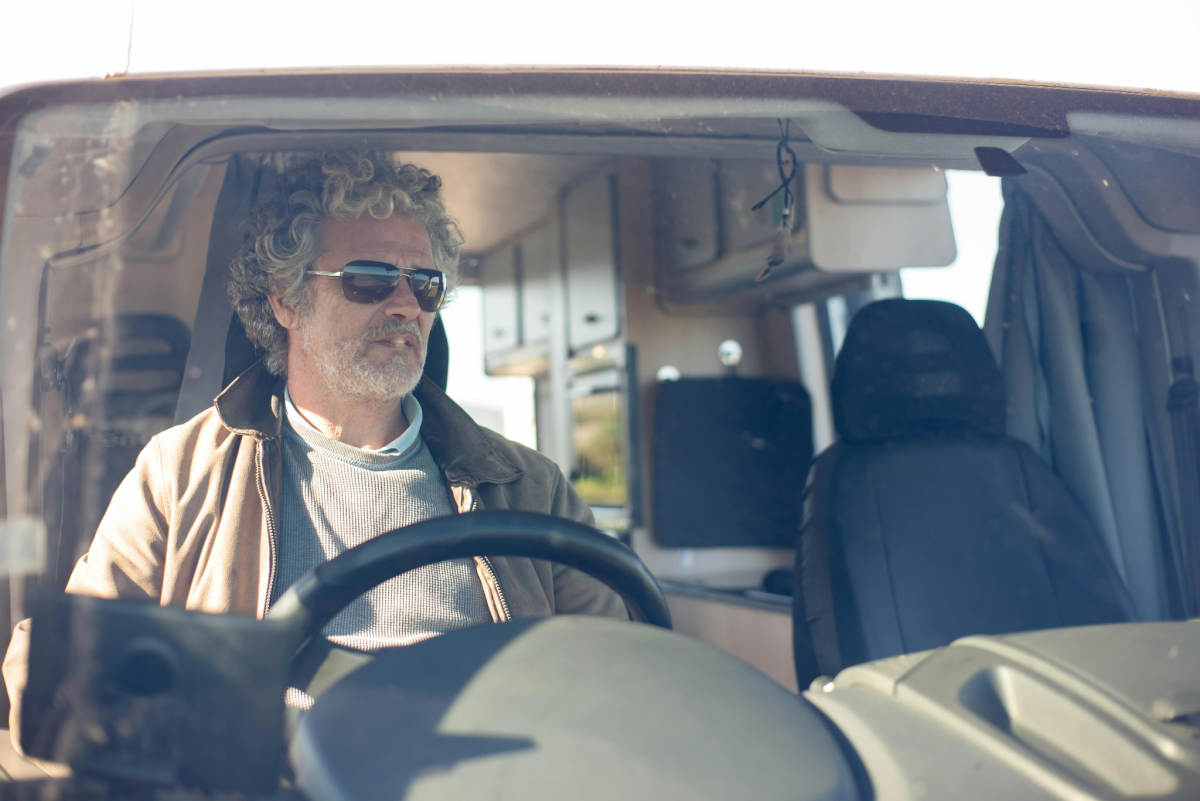
Fake headlines about new driving restrictions have been circulating online, leaving many older Australians anxious and confused.
Some stories even claimed senior drivers in Western Australia would face strict curfews, sparking panic before officials stepped in.
But behind the false reports lies a larger issue—seniors are increasingly being singled out by misinformation campaigns.
Authorities in Western Australia recently had to debunk one such story after fabricated reports claimed drivers over 60 would be banned from the roads between 10:00 pm and 5:00 am.
The posts spread rapidly across social media, complete with invented statistics about seniors causing collisions.
Officials clarified the truth: there were no such curfews, only existing medical requirements for drivers aged 80 and over.
The Department of Transport and Major Infrastructure stressed: 'This fabricated news has been shared extensively online and resulted in distress for those who believe the claims are true. The claims are not true.'
'This fabricated news has been shared extensively online and resulted in distress for those who believe the claims are true. The claims are not true.'
Driving has long represented independence, freedom, and connection for older Australians.
That is why false stories about restrictions strike such a nerve and spread quickly among senior communities.
Scammers know that stories threatening independence are more likely to be shared—especially when packaged in slick, AI-generated formats.
The WA curfew hoax had all the classic warning signs of misinformation.
It used vague wording like 'authorities say', relied on American spellings, and quoted no real officials.
The stories also appeared on websites with suspicious names designed to look legitimate, a tactic commonly used by those spreading false content.
Your best defence lies in slowing down and double-checking before believing or sharing.
Transport authorities recommend verifying stories through state government websites, checking for official press releases, and comparing details across trusted news outlets.
If in doubt, a phone call to your transport department can provide peace of mind.
Quick verification resources
NSW: service.nsw.gov.au
VIC: vicroads.vic.gov.au
QLD: tmr.qld.gov.au
WA: transport.wa.gov.au
SA: sa.gov.au/topics/transport
TAS: transport.tas.gov.au
ACT: accesscanberra.act.gov.au
NT: nt.gov.au/driving
So what are the real rules?
In New South Wales, annual medical checks begin at age 75, with drivers offered modified licences at 85 if they prefer reduced testing.
Victoria has no automatic age-based testing, though health conditions must be declared.
Queensland requires medical certificates from 75, while WA begins annual checks at 80.
South Australia, Tasmania, and the ACT have their own systems of self-assessments or medical reviews starting from 75.
In every case, the focus is medical fitness—not curfews or sudden bans.
Concerns about safety are real, but they are handled with nuance.
Rising crash figures among people over 75 reflect the ageing population more than declining ability.
Modified licences allow many seniors to keep driving safely, with tailored conditions such as automatic-only vehicles or local-area restrictions.
What senior driver rules are really about
- Medical fitness assessments, not blanket restrictions
- Preserving independence through modified licences when needed
- Gradual, supportive transitions rather than sudden bans
- Balancing safety with mobility and community connection
False reports about senior driving restrictions are unlikely to stop.
That is why bookmarking your state transport website, signing up for updates, and relying only on verified senior organisations can keep you one step ahead.
Most importantly, remember that real changes to driving laws do not arrive overnight—they go through consultation, debate, and formal announcements.
Do not let misinformation rob you of peace of mind—your independence on the road is far safer than the scammers want you to believe.
What This Means For You
Fake news targeting seniors often preys on one of the biggest fears—losing independence. For many older Australians, the ability to drive is more than just transport, it represents freedom and connection to loved ones. That is why stories about driving restrictions spread so quickly and cause so much distress.
The WA curfew story was a clear example of this, a complete fabrication that fooled thousands before officials stepped in to expose it. While it caused worry, it also highlighted how easily misinformation can spread online when it taps into seniors’ deepest concerns.
In reality, each state has reasonable age-based driving rules that focus on medical checks, not blanket curfews or bans. These measures are in place to keep seniors safe on the road while preserving independence for as long as possible.
That is why it is so important for seniors to protect themselves by verifying any news through official government channels. By taking this step, you can avoid unnecessary anxiety, stay informed, and keep control of your independence without letting scammers dictate the story.
If stories about false road rules can spread so quickly online, it raises the question of what real changes could be coming down the pipeline.
Authorities across the country continue to review how licensing systems work, with debates often sparking over medical checks, modified licences, and road safety measures.
One recent update shines a light on proposals that could directly reshape how licences are managed in the future.
Read more: Buckle up, seniors! New driving regulations could target elderly licence holders
Aussie road authorities debunk new curfew rule as elderly drivers express distress — WA authorities clarified that reports of curfews for drivers over 60 were fabricated, stressing only existing medical requirements apply.
https://au.news.yahoo.com/aussie-ro...derly-drivers-express-distress-055040074.html
Driver's licence regulations in Australia for seniors — Explains WA’s rules, requiring annual medical assessments from age 80, with driving tests only if recommended by a doctor.
https://www.seniors.com.au/car-insurance/discover/driving-licence-regulations-for-seniors
Driver's licence regulations in Australia for seniors — Outlines NSW’s requirements, including annual medical checks starting at age 75, with modified licence options available at 85.
https://www.seniors.com.au/car-insurance/discover/driving-licence-regulations-for-seniors
Driver's licence regulations in Australia for seniors — Notes that Victoria has no automatic age-based testing, but drivers must report medical conditions affecting their ability to drive.
https://www.seniors.com.au/car-insurance/discover/driving-licence-regulations-for-seniors
Driver's licence regulations in Australia for seniors — States that Queensland requires drivers aged 75 and over to carry a valid medical certificate while driving.
https://www.seniors.com.au/car-insurance/discover/driving-licence-regulations-for-seniors
Driver's licence regulations in Australia for seniors — Explains South Australia’s annual self-assessment forms for drivers from age 75, with doctor input if concerns arise.
https://www.seniors.com.au/car-insurance/discover/driving-licence-regulations-for-seniors
Driver's licence regulations in Australia for seniors — Details that the ACT requires annual medical examinations from a doctor beginning at age 75.
https://www.seniors.com.au/car-insurance/discover/driving-licence-regulations-for-seniors
Licensing of Older Drivers in Australia | Budget Direct — Highlights conditional or modified licences that allow seniors to continue driving with tailored restrictions.
https://www.budgetdirect.com.au/car.../licensing-of-older-drivers-in-australia.html
Your licence from age 70 | NSW Government — Emphasises that older driver licensing policies balance independence and mobility with community safety.
https://www.nsw.gov.au/driving-boat...r-drivers-and-riders/your-licence-from-age-70
Have you ever second-guessed a story online that seemed designed to worry seniors about their freedoms?







